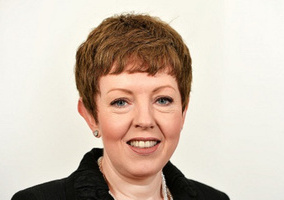Registration as a charity should be “a badge of quality”, according to the government’s candidate for chair of the Charity Commission.
Martin Thomas, who currently sits on the boards of three charities, appeared before MPs on the Digital, Culture, Media and Sport (DCMS) select committee this morning, where he answered questions on topics including the challenges facing the Commission and public trust in charities.
The committee cannot veto the government’s appointment, but it advises DCMS on whether to proceed. Thomas refused to say whether he would withdraw from the role if MPs recommended that he should not be appointed.
Three challenges
In his opening comments, Thomas described the three main challenges in the relationship between charities and the Commission:
- The sector’s financial recovery after the pandemic
- The expansion of digital technology
- Working with organisations which are not registered charities but can achieve social impact
On the first challenge, Thomas said: “There is going to be a healthy tension, which is already exhibiting itself in the sector, between charities having a desire to contribute to the full in building back better, in the levelling up agenda, in recovering from the pandemic, versus the fact that a great many of them have dipped into their financial reserves, due to problems in fundraising in the normal course during the pandemic.”
He added that this could potentially be addressed through a new requirement that charities don’t just state their reserves in accounts but report on policies for building and protecting their savings.
Martin identified digital technology as the second challenge and “new ways of working and communicating”.
He argued that, for new trustees, “a 40-page document is not the best way to enter into a regulatory relationship with them”. People were used to “trying not to read very long documents”, he added, recommending that the regulator could move towards using “bite-size pieces of information, very often delivered to us on-screen”.
This could lead to “more people stepping up to trusteeship”, Thomas said.
Preserving importance of charities
Thirdly, he said there was a challenge in how many people were “keen to achieve charitable or ethically-good aims in their life, outside of the scope of the formally regulated charitable sector”, giving the example of environmentally-conscious investing.
Martin said that the Commission needed to be “aware of this, it needs to be apprised of this”.
Nonetheless, the Commission must find a way of “preserving the particular role that regulated charities have within the sector”, Thomas said, adding “being regulated should be, and should continue to be, a badge of quality” for donors, staff and volunteers.
Won't be drawn on committee recommendations
Labour MP Kevin Brennan, a former charities minister, asked Thomas if he would take up the post even if the committee did not endorse him.
Thomas declined to commit to withdrawing his candidacy, and said he “would have to look very carefully at the reasoning set out by the committee and then decide”.
Brennan pointed out that, when other candidates for public appointments had been asked the same question, they had said “without hesitation” that they would not accept the role.
When pushed by the committee chair Julian Knight MP for a yes or no answer, Thomas repeated that “it depends on the reasoning”.
He said he was confident he had shown “the professional competence and the personal independence necessary for the role”.
Knight told Thomas that his committee did not recommend his predecessor Baroness Stowell to the job because she gave “the worst interview I have seen in 30 years of professional life” when she appeared before MPs. Stowell was appointed to the position despite the Committee’s reservations.
Thomas said it was “not for me to judge” whether Stowell’s time at the regulator had been a success.
He revealed that he applied for the role at the end of April or early May, and was interviewed in September.
Public trust
Talking about Tina Stowell’s tenure as Commission chair, Thomas told MPs that Stowell’s focus on public confidence in the sector had led to an emphasis on “say[ing] to charities, ‘Please be more trustworthy’”.
He added: “Her dialogue was primarily at the charity sector, urging them to behave in ways which the public would find more trustworthy. Some people found that controversial.”
However, Thomas pointed out the Commission’s own measures of public confidence in the sector showed trust had recovered in the last two or three years. “Although the previous chair’s stance has been criticised, it actually worked”, he said.
Related news











